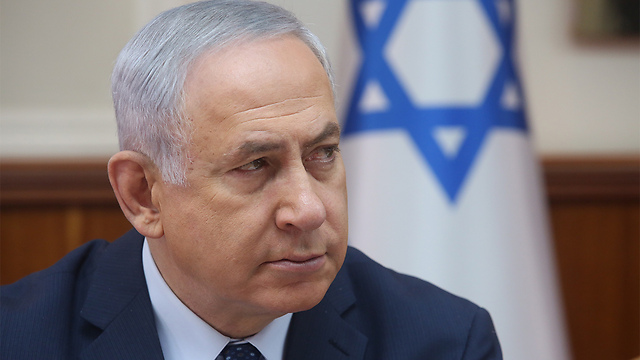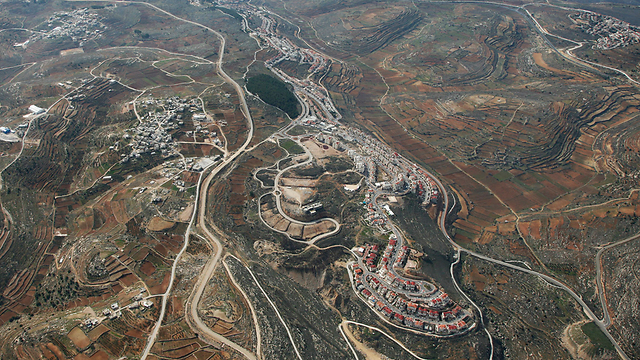
Migron evacuees
Photo: Nimrod Glickman

Settlers ask Netanyahu to approve 10,000 new West Bank homes
Yesha Council representatives slam the prime minister's 'discriminatory' policy against settlements, decry insufficient budgetary allocations for development, and present list of demands including approval of 10,000 new housing units; 'You must lead the process of equal investment.'
The pro-settlement Yesha Council presented Prime Minister Benjamin Netanyahu Wednesday with a list of grievances against his “discriminatory” policy against settlements, demanding he commit to approving 10,000 new housing units in the West Bank.
Netanyahu held a meeting with members of the Yesha Council during which they made a series of demands for improving the process of receiving building permits in the West Bank, and claimed they were being subjected to unfair treatment. “Let’s call a spade a spade,” they told him.
“While in small Israel, both in the urban centers and in the periphery, huge investments are being made, in Judea and Samaria there is neglect that has been going on for years of everything related to the development of transportation, water, electricity and gas infrastructure,” the Yesha representatives complained.
Beseeching Netanyahu to stop announcing settlement freezes, which they said were imposed on Israel by the Obama administration, the representatives asked him to countenance the construction of tens of thousands of housing units.
Among other grievances presented before the prime minister, the settlers expressed reservations about the postponement of the meeting scheduled this week with the West Bank Civil Administration's higher planning committee following a request by US President Donald Trump.
They further insisted that he move forward with a program to approve permits for homes for former residents of the illegal outpost of Migron, which was evacuated five years ago, and in Negohot.
But the Yesha representatives were disappointed that Netanyahu fell far short of their expectations in the meeting when he promised the construction of 3,000 units. While the figure they were seeking was unrealistic for the time being, the representatives were dismayed by Netanyahu’s ability to capitalize on what he himself apparently admitted was now a better situation than under the previous US administration.
“With Obama, every balcony I would build in Gilo was condemned. Today the situation is different,” he reportedly told them.
In a letter detailing the demands, head of the Yesha Council Avi Roeh asserted the time had come for the government to change its perception of the West Bank.
“The national government under your authority must lead the process of equal investments in the infrastructures in Judea and Samaria,” Roeh wrote.
“In Judea and Samaria, there are a number of plans ready for immediate implementation that will massively improve the quality of life for the residents of the area,” he continued.
These plans, he claimed, had already gone through all necessary stages and were only waiting for budgetary approval.
“We ask you to act immediately to find a solution for the allocation of the budget for the paving of roads in this fiscal year,” he said.
A few months ago, the government announced that NIS 116 billion from the state budget would be invested into a multi-year plan aimed at developing infrastructure. The plan, which was supposed to be implemented between 2017 and 2021, includes 147 projects throughout the state.
However, settlers were disheartened by the fact that according to the figures of the plans, the West Bank, which comprises an area equal to one-quarter of the size of the State of Israel and which has about 2.5 million inhabitants, is to be the recipient of a mere NIS 70 million, constituting 0.6 percent of the total budget.

















